Recreation
Recreation refers to activities that individuals engage in for enjoyment, leisure, and pleasure. These activities are essential for promoting physical and mental well-being, reducing stress, and providing a break from everyday responsibilities. Recreation can take various forms, including sports, hobbies, travel, and social events.
Types of Recreation
- Outdoor Recreation: Activities such as hiking, camping, fishing, and biking that take place in natural settings.
- Indoor Recreation: Activities like board games, puzzles, and indoor sports that are enjoyed within enclosed spaces.
- Social Recreation: Involves engaging in activities with others, such as attending parties, festivals, or community events.
- Physical Recreation: Includes activities that promote physical fitness, such as swimming, running, or yoga.
- Cultural Recreation: Involves participating in activities related to arts, music, theater, and other cultural pursuits.
Benefits of Recreation
Engaging in recreational activities offers numerous benefits, including:
- Physical fitness and improved health
- Stress reduction and relaxation
- Social interaction and the development of friendships
- Enhanced creativity and cognitive function
- Improved overall well-being and quality of life
Study Guide
To understand the concept of recreation thoroughly, it is essential to study the following aspects:
- Definition of Recreation
- Types of Recreation
- Benefits of Recreation
- Impact of Recreation on Physical and Mental Health
- The Role of Recreation in Stress Management
- Recreational Activities for Different Age Groups
- Importance of Balancing Work and Recreation
By exploring these topics, you will gain a comprehensive understanding of the significance of recreation in promoting a healthy and fulfilling lifestyle.
.◂Earth Science Worksheets and Study Guides High School. Earth's Crust
Worksheet/Answer key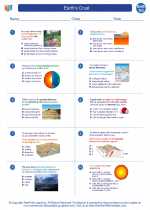 Earths Crust
Earths Crust  Worksheet/Answer key
Worksheet/Answer key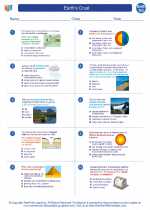 Earths Crust
Earths Crust  Worksheet/Answer key
Worksheet/Answer key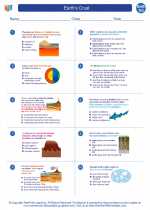 Earths Crust
Earths Crust  Vocabulary/Answer key
Vocabulary/Answer key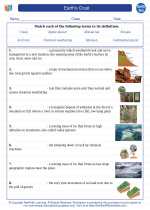 Earths Crust
Earths Crust  Vocabulary/Answer key
Vocabulary/Answer key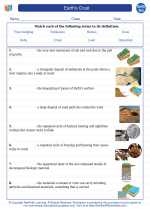 Earths Crust
Earths Crust  Vocabulary/Answer key
Vocabulary/Answer key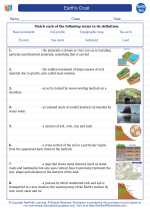 Earths Crust
Earths Crust 

 Worksheet/Answer key
Worksheet/Answer key
 Worksheet/Answer key
Worksheet/Answer key
 Vocabulary/Answer key
Vocabulary/Answer key
 Vocabulary/Answer key
Vocabulary/Answer key
 Vocabulary/Answer key
Vocabulary/Answer key

The resources above cover the following skills:
Earth Science
History of Earth
Develop a model to illustrate how Earth’s internal and surface processes operate at different spatial and temporal scales to form continental and ocean-floor features.
Earth Science
History of Earth
Develop a model to illustrate how Earth’s internal and surface processes operate at different spatial and temporal scales to form continental and ocean-floor features.
Earth Science
History of Earth
Develop a model to illustrate how Earth’s internal and surface processes operate at different spatial and temporal scales to form continental and ocean-floor features.
Earth Science
History of Earth
Develop a model to illustrate how Earth’s internal and surface processes operate at different spatial and temporal scales to form continental and ocean-floor features.